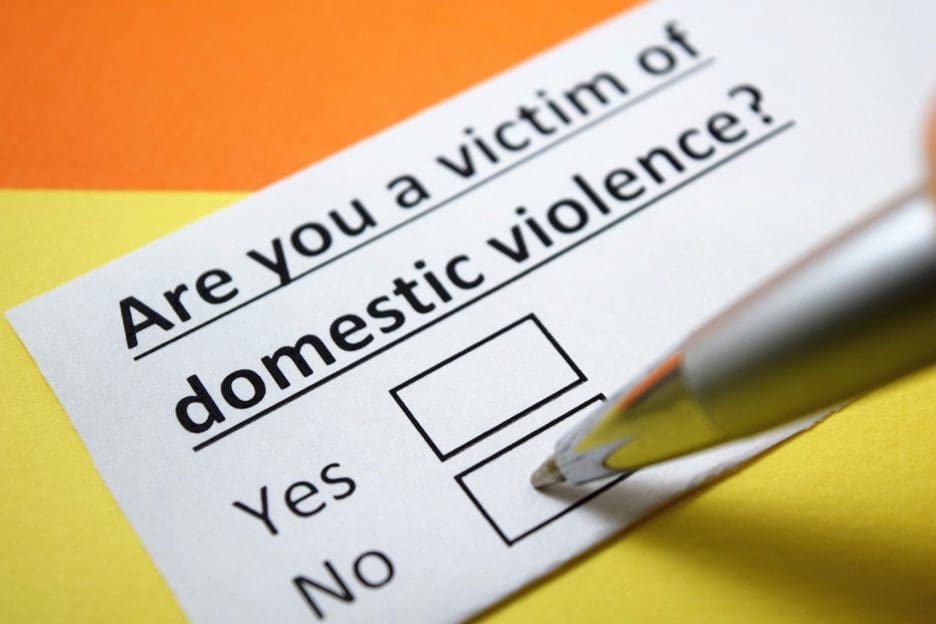We’re here to help. Sign up to our Lunch with a Lawyer Facebook Group where we answer your questions for free every lunchtime
Welcome to the first instalment of our two-part series on domestic violence myths.
Domestic violence is a sensitive topic, but it is still one that needs to be talked about openly and candidly. Domestic violence occurs far too frequently. According to the 2016 Personal Safety Survey completed by the Australian Bureau of Statistics 17% of women and 6% of men had experienced physical and / or sexual abuse by a current or former partner from the age of 15. Further, 23% of women and 16% of men had experienced emotional abuse by a current or former partner from the same age. During this 8 part series we will discuss domestic violence and in the process dispel some common myths and provide helpful information if you are facing this very difficult situation.
The definition of domestic violence is broad and covers a range of different behaviours that occur within the context of a relevant domestic relationship. These behaviours are not just limited to physical violence. Domestic violence is defined in section 8 of Domestic and Family Violence Protection Act 2012 Qld as behaviour that is
In the same section of the Act some specific examples are provided of behaviour that is domestic violence. Some of these examples include
Practical Pointer: Get to Safety and Seek Support
If you find yourself in a situation of domestic violence call the Police and get to safety immediately. Once you are safe, seek support and assistance from family and friends. You should also seek professional advice and information about the legal options for protecting yourself.

It is not only the Police who can apply for a domestic violence order.
Section 25 of the Domestic and Family Violence Protection Act 2012 Qld provides that an application for a domestic violence order may be made personally by the victim. If, however the victim feels apprehensive or overwhelmed by the application process it is also possible for them to authorise a person to make the application on their behalf. It is also recognised that a person acting as a guardian or attorney can make an application for a domestic violence order on behalf the victim. In these circumstances the application process would involve attending a Police Station or Court House to obtain an application form, then filling out the form and filing it with the Court.
An alternative approach is for the victim to make a complaint of domestic violence to the Police. The Police will then determine whether to make an application for a domestic violence order and bring any criminal charges if appropriate. In this situation any application form would be completed and filed with the Court by the Police.
There is no fee to pay when filing an application for a protection order with the Court.
Practical Pointer: Detailed Information
When completing an application for protection order you should provide as much information as possible about any incidents of domestic violence that have occurred including the dates and times of the incidents as well as any injuries sustained. In addition, details regarding the reporting of any domestic violence to authorities or medical services should be provided.

The protection provided by a domestic violence order isn’t just limited to the victim of the domestic violence. Section 24 of the Domestic and Family Violence Protection Act 2012 Qld provides that a domestic violence order can also cover other ‘named people’ who have been affected or impacted by the violence, namely:
A court can name a child of the aggrieved or a child who usually lives with the aggrieved on a domestic violence order to protect the child from associated domestic violence or being exposed to domestic violence. A child is considered to have been exposed to domestic violence if the child has:
The court must consider naming a child on a domestic violence order even if the application does not specifically request that the children be named. A relative or associate of the aggrieved may be named on a domestic violence order if the Court is satisfied that naming the person is ‘necessary or desirable’ to protect that person from domestic violence.
When a person is named on a domestic violence order the conditions that apply to protect the aggrieved will also apply to the people who are named on the order.
If you are making an application for a protection order and you are seeking to name other people on the order make sure you include their full names, date of birth and addresses on the application form.

A domestic violence order protects the victim of domestic violence by restraining the behaviour of the perpetrator.
Section 54 of the Domestic and Family Violence Protection Act 2012 Qld provides that certain standard conditions that must be included in all domestic violence orders. These standard conditions are that the perpetrator must be of good behaviour and must not commit domestic violence towards the victim. In circumstances where another adult is named on the domestic violence order the perpetrator must also be of good behaviour and not commit associated domestic violence against that person. If a child is named on the domestic violence order, then the perpetrator must be of good behaviour and not commit associated domestic violence and not expose the child to domestic violence.
In addition to the standard conditions, a domestic violence order can also include extra conditions if the court considers it necessary and desirable in the circumstances to protect the victim or a named person. Examples of the types of the conditions that can be included in a domestic violence order are (according to the DFVP Act):
If a domestic violence order is made, the perpetrator is not allowed to possess a weapon or a weapon’s licence under the Weapons Act 1990 Qld. The domestic violence order will note that any license held by the perpetrator is revoked and provide information about the surrender of their weapons – this applies even if the perpetrator has a profession that involves working with a weapon.
Practical Pointer: Detailed Information
If you are making an application for a protection order and are requesting that additional conditions be made as well as the standard conditions you will need to outline reasons in support. Carefully read each of the additional conditions set out in the application form and provide the additional information and reasons that has been requested.
This information is intended as general legal information only for people living in Queensland and is not a substitute for individual legal advice.
Here at New Way Lawyers, we have created a new way to provide legal services. We are committed to providing the best quality legal advice at an accessible price with a strong focus on client care.
I wanted to thank you Joanne for all your work and effort on behalf of my family and I. Everyone at New Way Lawyers has been very helpful and made an unfamiliar process relatively easy for me. Thanks so much for everything. All the best.
BA, 31 January 2017